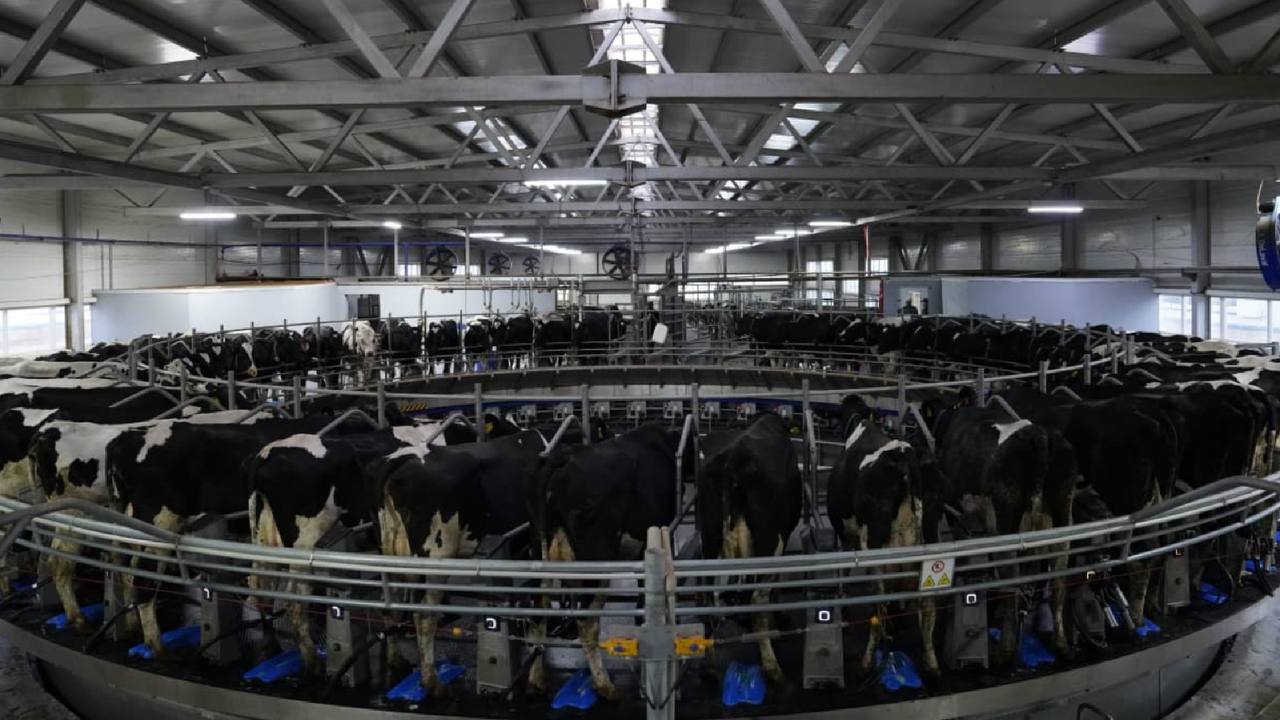ASTANA, Kazakhstan, September 13. Kazakhstan is launching a special program aimed at developing pedigree livestock breeding, expected to increase livestock numbers and improve genetic quality, thereby positively impacting the productivity of the agricultural sector, Trend reports via the press service of Kazakhstan's prime minister.
This announcement came during a visit by Deputy Prime Minister and Minister of National Economy Serik Zhumangarin to the Akmola region. As part of his visit, he inspected the harvesting campaign in the fields of the “En Dala” farm and visited a dairy farm with 2,000 head of dairy cattle in the village of Manshuk, Tselinograd district.
The farm cultivates 46,000 hectares of arable land. Its main crops are wheat (25,000 ha) and barley (7,000 ha), with oilseeds covering 4,000 ha and fodder crops another 4,000 ha. In addition to dairy production, the farm maintains 1,500 head of pedigree Kazakh white-headed cattle and about 1,000 horses.
According to farm director Timur Pshenov, around 60 percent of the crops have been harvested. The wheat harvest is coming in at around 16-17 centners per hectare, while barley is holding steady at about 16 centners per hectare. The lion's share of the wheat falls into the Grade 1 and Grade 2 categories, with a smattering of Grade 3 thrown into the mix.
Livestock farmers were particularly interested in support measures for the sector. Deputy Minister of Agriculture Amangaliy Berdalin reported that, as of August 1, a new preferential lending program for livestock farming has been launched, offering 50 billion tenge ($90 million) in loans at an annual interest rate of five percent.
“Agriculture has become a driver of economic growth. Although it accounts for about 3.9 percent of Kazakhstan’s GDP structure, the total multiplier effect—through increased transportation, warehousing, processing, and food production—is much greater. We are currently working on attracting young professionals to rural areas and making the veterinary profession more appealing,” emphasized Zhumangarin at the end of the meeting.
The Deputy Prime Minister also visited a newly opened dairy farm in the village of Manshuk. The total cost of the project amounted to 6.2 billion tenge ($11.2 million), of which 4 billion tenge ($7.2 million) was issued as a preferential loan under the Major Project at an annual interest rate of 2.5 percent.
The agricultural operation presently accommodates a herd of 2,000 dairy bovines. The operational throughput is quantified at 12,000 metric tons of dairy output annually, translating to a mean daily yield of 33 metric tons. The establishment has generated in excess of 70 employment opportunities.
Stay up-to-date with more news on Trend News Agency's WhatsApp channel







